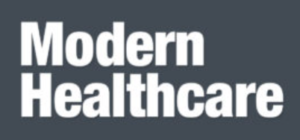
By Alex Kacik
December 14, 2021
A growing share of U.S. adults has delayed healthcare this year because they couldn’t afford it, a trend that is driving up treatment costs and worsening patient health.
Thirty percent of Americans skipped care this summer due to cost, up from 18% earlier this year, according to a West Health and Gallup survey. About 1 in 5 said they or a member of their family saw their health deteriorate over the past year as a result. The firms polled 6,663 people in September and October.
Low-income families and people of color have been disproportionately burdened by the COVID-19 pandemic, highlighting unyielding health equity issues. High healthcare costs hit those who can least afford it the hardest. About 2 in 5 Medicaid beneficiaries and those without insurance have seen their health conditions—typically chronic—worsen over the past year after forgoing care.
The financial impact is now expanding to households that make at least $120,000 a year, 20% of which have reported delaying care due to cost over the three months prior to the survey.
As healthcare becomes less affordable and families reach increasing levels of desperation, the velocity of change in the survey results this year has been eye-opening, said Tim Lash, chief strategy officer for West Health.
“Delaying care can be deadly,” Lash said. “But save for significant reform both on the drug side and on the provider-payer side, we’re going to see the number of bodies stack up.”
A 66-year-old survey respondent reported that his sister died of cancer in July. Her insurance didn’t approve a recommended scan and she couldn’t afford it as a result.
This anonymous respondent is one of 12.7 million Americans—translating to about 5% of the population—who have lost a loved one over the past year because they couldn’t afford care. Black adults are twice as likely to know someone who died compared to their white counterparts.
“For the richest country in the world to suffer those levels of mortality as a direct function of an inability to pay—if that is not a wakeup call, I don’t know what is,” said Dan Witters, a senior researcher for Gallup. “When people have to put $60 of gas in their tanks or spend more on groceries, it really exacerbates the worsening healthcare cost crisis in the U.S.”
More than 40% of adults are worried they will be unable to pay for needed healthcare services over the next year, according to the survey. That trend is manifesting in inpatient and outpatient settings as well as pharmacies, where more prescriptions aren’t being filled.
Fewer patients are coming into Providence’s St. Joseph Hospital Orange with stomach issues. But when they do, they’re are sicker than before the pandemic, said Glenn Raup, executive director of behavioral health, emergency and observational health at the not-for-profit Catholic hospital in Orange, California.
“Fewer endoscopies and colonoscopies are being performed,” Raup said. “As a result of that, when they do finally present to the ED, they are significantly worse.”
Emergency department utilization has dropped significantly over the course of the pandemic, which is not necessarily a bad thing, experts said. The healthcare system is rife with wasteful spending, and patients using emergency departments for non-life-threatening issues is one cause.
Some providers may feel pressure to increase utilization to recoup lost revenues, which could explain some of the rising cost burden. But avoiding necessary care, particularly for those with chronic conditions, poses a major threat, observers said.
“Many people have developed new chronic conditions,” said Lash. That prolongs the cycle of disproportionate healthcare cost exposure, he said. “The healthcare system isn’t well-equipped and can take sometimes months or years to address the social and physical issues associated with those types of conditions. Our path out of the pandemic may be more clear, but the path out of healthcare’s financial toxicity is not.”
READ THE FULL ARTICLE IN MODERN HEALTHCARE


